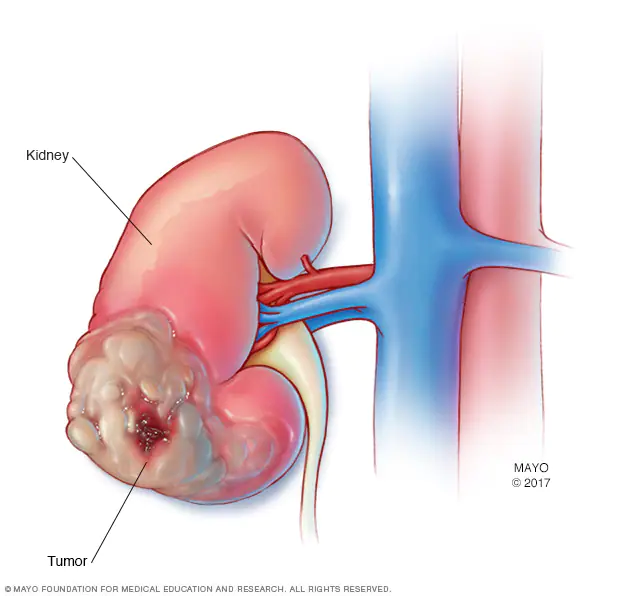Kidney Cancer
Kidney cancer, also known as renal cell carcinoma (RCC), is a type of cancer that starts in the cells of the kidneys, the organs responsible for filtering blood and removing waste in the form of urine. Kidney cancer is often diagnosed at an early stage and has several treatment options available. Here are some key points about kidney cancer:

- Risk Factors:
- Age: The risk of kidney cancer increases with age, with the majority of cases diagnosed in individuals over 45.
- Gender: Men are slightly more likely than women to develop kidney cancer.
- Smoking: Cigarette smoking is a significant risk factor for kidney cancer.
- Obesity: Being overweight or obese increases the risk.
- High blood pressure: Hypertension is associated with an increased risk of kidney cancer.
- Family history: Individuals with a family history of kidney cancer may have an elevated risk.
- Certain inherited conditions: Conditions such as von Hippel-Lindau (VHL) disease or hereditary papillary renal cell carcinoma (HPRCC) increase the risk.
- Types of Kidney Cancer:
- Renal Cell Carcinoma (RCC): The most common type, representing about 90% of kidney cancers. There are different subtypes, including clear cell, papillary, and chromophobe RCC.
- Transitional Cell Carcinoma (TCC): This type involves the renal pelvis or ureters, the tubes that carry urine from the kidneys to the bladder.
- Signs and Symptoms:
- Kidney cancer may not cause symptoms in its early stages.
- Common symptoms may include blood in the urine, persistent pain or pressure in the side or back, a lump or mass in the side or abdomen, unexplained weight loss, and fatigue.
- Diagnosis:
- Diagnosis involves imaging tests such as CT scans, MRIs, or ultrasounds to visualize the kidneys and detect tumors.
- A biopsy may be performed to confirm the presence of cancer and determine the type.
- Staging:
- Staging helps determine the extent of the cancer and guide treatment decisions.
- Treatment Options:
- Surgery: The primary treatment for localized kidney cancer involves removing part or all of the affected kidney.
- Partial nephrectomy: Removal of the tumor and a portion of the kidney.
- Radical nephrectomy: Removal of the entire kidney.
- Cryoablation or radiofrequency ablation: Techniques that use extreme cold or heat to destroy cancerous tissue.
- Targeted therapy and immunotherapy: Medications that target specific molecules involved in cancer growth or stimulate the immune system to fight cancer.
- Radiation therapy: Using high-energy rays to target and kill cancer cells.
- Survival Rates:
- Prognosis varies based on factors such as the stage at diagnosis, the type of kidney cancer, and overall health.
- Kidney cancer is often diagnosed at an early stage, leading to favorable outcomes for many individuals.
- Ongoing Research and Advances:
- Ongoing research is focused on understanding the molecular and genetic factors underlying kidney cancer, leading to the development of targeted therapies.
- Immunotherapy has shown promise in the treatment of advanced kidney cancer by boosting the body’s immune response against cancer cells.





